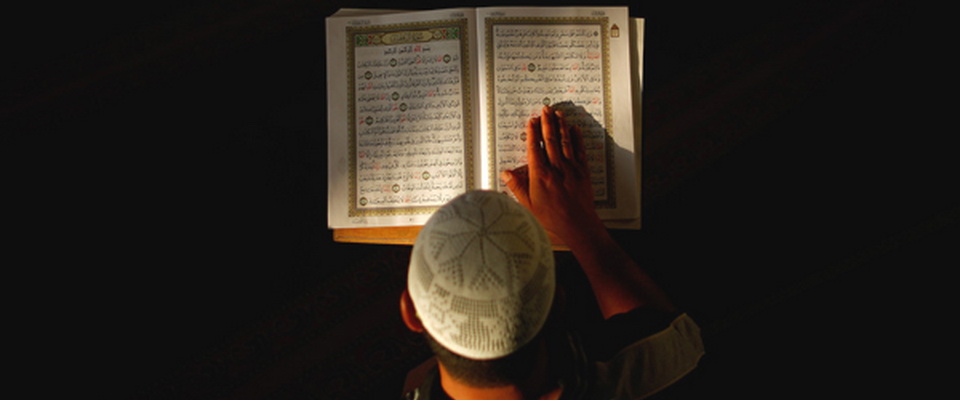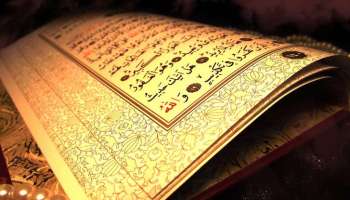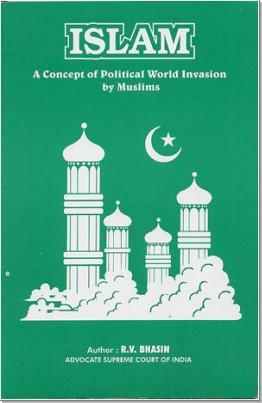By Smita Mukerji

About a year back, a manifesto signed by 300 prominent French politicians and intellectuals, including the former President Nicolas Sarkozy and former Prime Minister Manuel Valls, was published in the French daily Le Parisien, which gave a call to religious authorities that the Qur’ān be edited, “striking into obsolescence” verses within this central book of the Islamic faith that call for murder of Jews, Christians and non-believers, so that “no believer can refer to a sacred text to commit a crime.” Though the push for theological reform in Islam is not new, this manifesto is seen as a call to alter the holiest text of Muslims by deletion of certain portions, which is considered blasphemous, considering that for Muslims the Qur’ān is the divinely revealed word which cannot be tampered with.
This forceful declaration came about a month after the grisly murder of an octogenarian holocaust survivor, Mireilli Knoll, in what was described by the authorities as an anti-Semitic crime. In another hate-crime the previous year, a 67-year old Jewish lady, Sarah Halimi (real name: Lucie Attal-Halimi), was bludgeoned to death and thrown out of her apartment’s window by a Muslim assailant. The recent manifesto denounced the government’s and the media’s refusal to recognise “Islamic anti-Semitism” and its consequence, termed “low volume ethnic cleansing”, characterising the trend of Jewish families forced to vacate their homes, pull out their children from schools and change neighbourhoods occupied by them. This phenomenon is not altogether unknown in India and other countries with a significant Muslim minority, whereby once the Muslim community in a locality has achieved critical mass, non-Muslim communities are steadily edged out, exodus effected by unremitting acts of violence by Muslims on the persons and property of the latter (‘the others’ than the believers, as per the definition in Muslim holy books), their liberties curtailed, forced to escape for self-preservation.[1]
The manifesto generated an outcry from Muslims all over accusing it of homogenising all Muslims and applying falsified interpretations of the Qur’ān. Predictably, the French were accused of ‘racism’ and of being hostile towards the Islamic faith. Representatives of the religious community bewailed the appropriation of Islam by “ignorant Muslims who remove texts from their historical context”[2], of its alleged misuse by radical, literalist interpretation, and that “delinquents use the religion as a veneer for cheap crimes[3],” in short, the usual bromides that distract from Islam’s theological role in driving hate against non-Muslims, generation of conflict and terrorism.
We analyse the above contentions in this article, but in the context of a similar precedent which occurred in India, over three decades back.
The year was 1984. A letter dated July 20, written by one Himangshu Kishore Chakraborty of Calcutta, was received at the office of the Secretary, Department of Home, Government of West Bengal (GoWB). The contents of this letter were sensational! It pointed to matter contained in the Qur’ān which makes its publication an offence under Sections 153A and 295A of the Indian Penal Code (I.P.C.) In the three annexures to the letter were cited 37 verses from the Qur’ān that “preach cruelty, incite violence and disturb public peace”; 17 sayings that “promote on ground of religion, feelings of enmity, hatred and ill-will between different religious communities in India”; and 31 sayings that “insult other religions as also the religious beliefs of other communities.” The letter demanded that all copies of the Qur’ān in original Arabic as well as translations be forfeited to the government in accordance with Section 95 of the Criminal Penal Code.

The citations provided in the letter showed that Chakraborty had meticulously perused the Qur’ān and the bearing its contents had on the behaviour of Muslims towards non-Muslims. He certainly had been a firsthand witness to it, having been former resident among the Hindu minority in East Bengal (now Bangladesh), and the fact that such hostile and violent behaviour was approved by Islamic religious leaders as in conformity to the highest tenets of Islam.
Chakraborty’s letter was not acknowledged by the West Bengal Home Department, leave alone responded to and he therefore sent a reminder on August 14, 1984 with a copy of his first letter along with its annexures. But six months thereafter even this remained unanswered. It was during this time that he ran into Chandmal Chopra, an association which led to a momentous plea for justice that was and remains denied till this date, but nevertheless marks a significant event in the Hindus’ fight against an offensive, violent ideology that continues to aggress upon them and larger humanity over 14 centuries, enjoying immunity in the name of being the ‘sacred belief’ of its votaries.
Chopra had personally undertaken in-depth study of the Qur’ān. He wanted to understand why, in spite of India’s magnanimous gesture in helping Bangladesh overthrow the oppressive regime which committed genocides upon them and to gain dignity as a free people, were the Hindus there being systematically eliminated from their ancestral land by incessant violence against them by Muslims. Himself an adherent of the Jaina tradition and the values prescribed by all schools of Sanatana Dharma, of non-violence, truthfulness, non-stealing, chastity and non-covetousness, it was unfathomable to him how could people persist with practices contrary to basic values of humanity, and do so with a good conscience? The answer, as he found, lay in the Qur’ān.
Considering Chakraborty’s initiative as vital to public interest, Chopra wrote to the Home Department on March 16, 1985 referring to the former’s previous missives and drawing attention to the contentious elements of the Qur’ān, requested his letter to be treated as a “notice demanding justice” and urged necessary steps to be taken by GoWB, failing which he would take “such steps as may be advised to us.” Needless to say, this letter too remained unacknowledged. Therefore, on March 29, 1985 he filed a writ petition in the Calcutta High Court under Article 226 of the Indian Constitution, joined in by another Sital Singh as co-petitioner, on the grounds provided in Chakraborty’s letter, however couched in appropriate legal language[4] this time and through proper judicial procedure, what came to be famously known as the ‘Calcutta Quran Petition’.
 Sections 153A and 295A of I.P.C. are the provisions dearest to Muslims of India who have ofttimes sought shelter under these to block any public discussion or criticism of their creed in general and their prophet in particular. Any publication that ever critically examined the precepts of Islam and/or the words and acts of the prophet were caused to be swiftly proscribed under § 95 Cr.P.C by vociferous and almost always violent Muslim protests, often pandered to by the political class. The banning of ‘Islam, A Concept of Political World Invasion by Muslims’, by R. V. Bhasin, by the instructions of Vilasrao Deshmukh (Ex-Chief Minister of Maharashtra) after written complaints were submitted by Islamic organsations like Jamaat-e-Islami, etc, is a case to the point. What however they least suspected was that the tables would be turned on them by invoking these very provisions seeking ban on the Qur’ān.
Sections 153A and 295A of I.P.C. are the provisions dearest to Muslims of India who have ofttimes sought shelter under these to block any public discussion or criticism of their creed in general and their prophet in particular. Any publication that ever critically examined the precepts of Islam and/or the words and acts of the prophet were caused to be swiftly proscribed under § 95 Cr.P.C by vociferous and almost always violent Muslim protests, often pandered to by the political class. The banning of ‘Islam, A Concept of Political World Invasion by Muslims’, by R. V. Bhasin, by the instructions of Vilasrao Deshmukh (Ex-Chief Minister of Maharashtra) after written complaints were submitted by Islamic organsations like Jamaat-e-Islami, etc, is a case to the point. What however they least suspected was that the tables would be turned on them by invoking these very provisions seeking ban on the Qur’ān.
The matter took its course, after some initial postponements listed to appear before Justice Mrs. Padma Khastgir on April 12, who gave directions for filing of affidavit-in-opposition by the Respondents (State of West Bengal) by May 3, which was duly filed. However, before the affidavit-in-reply could be filed by the Petitioners due by May 17, the matter was released from Justice Khastgir’s list and assigned to another bench on May 10, to be heard by Justice Mr. Bimal Chandra Basak.
A kerfuffle ensued and what played out in the following days was an ignoble display of utter poltroonery by every person of note in the establishment and the press. It exposed a critical lack of character and mettle in a people, a complete failure to cognise the biggest threat that imperils our civilisation, the ideological one. It was an opportunity lost to define anew what serves us, a morally and intellectually effete nation unable to think for itself, refusing to look at the truth staring at them, taking cover under phony themes of ‘secularism’ fed to us by those by whom these had been devised to keep us mentally enslaved. Sadly, even today as a collective we are stuck in this conceptual warp, too dumbed down to extract any learning from our historic experience, even after a millennium of being subjected to it.
The assertions of Himangshu Kishore Chakraborty and Chandmal Chopra were by no means the apocalyptical fantasies born of a doomsayer’s fevered brain, but a realistic assessment of one of the most—if not the most—dangerous ideologies and its implications on our nationhood, a pernicious, violent political ideology masquerading as a religion. There are several states, some lesser in standing in the world than India, which recognise this fact, viz. Bhutan, Slovakia and Angola, where Islam is banned. China does not recognise Islam as a legitimate religion and severely interdicts religious activities of Muslims, along with North Korea which has similar prohibitions for both Christianity and Islam. Japan–and now Sri Lanka after the bombing of Christian churches in that country in April this year–restricts religious activities of Christianity and Islam as inconsistent with and inimical to their civilisational values and national interests. There have been similar movements seeking a ban on the Qur’ān in several countries like Poland and the Pacific Islands of Samoa, and those which want obtrusive symbols of Islamism, e.g. the burqa, banned in the Netherlands, France, Belgium, Bulgaria, Latvia, Switzerland, Chad, Austria, Congo–Brazzaville, Cameroon, etc. But we in India are debilitated by political correctness, brainwashed with fallacious ideals that impair our sense of self-preservation.
This piece is concluded with an affirmation in the words of eminent scholar and writer, Sita Ram Goel:
“No law court can deny to ‘infidels’ the right to know what treatment the Quran prescribes for them at the hands of the ‘believers’.”
In the next section of this write up we take a look at the particulars of the Calcutta Quran Petition as well as those of the judgment of Calcutta High Court in the matter.
Cover Picture Source: ‘Citizen Warrior’
Read the next section of this series here.
[1] The most glaring recent examples are the cities of Kairana and Saharanpur in the State of Uttar Pradesh, in India.
[2] Tareq Oubrou, imam of the grand mosque of Bordeaux
[3] Ibid.
[4] Prayer for a rule nisi on GoWB “…to show cause as to why a writ of mandamus be not issued to it directing it to declare each copy of Quran whether in original Arabic or in any of the languages as forfeited to the Government”
